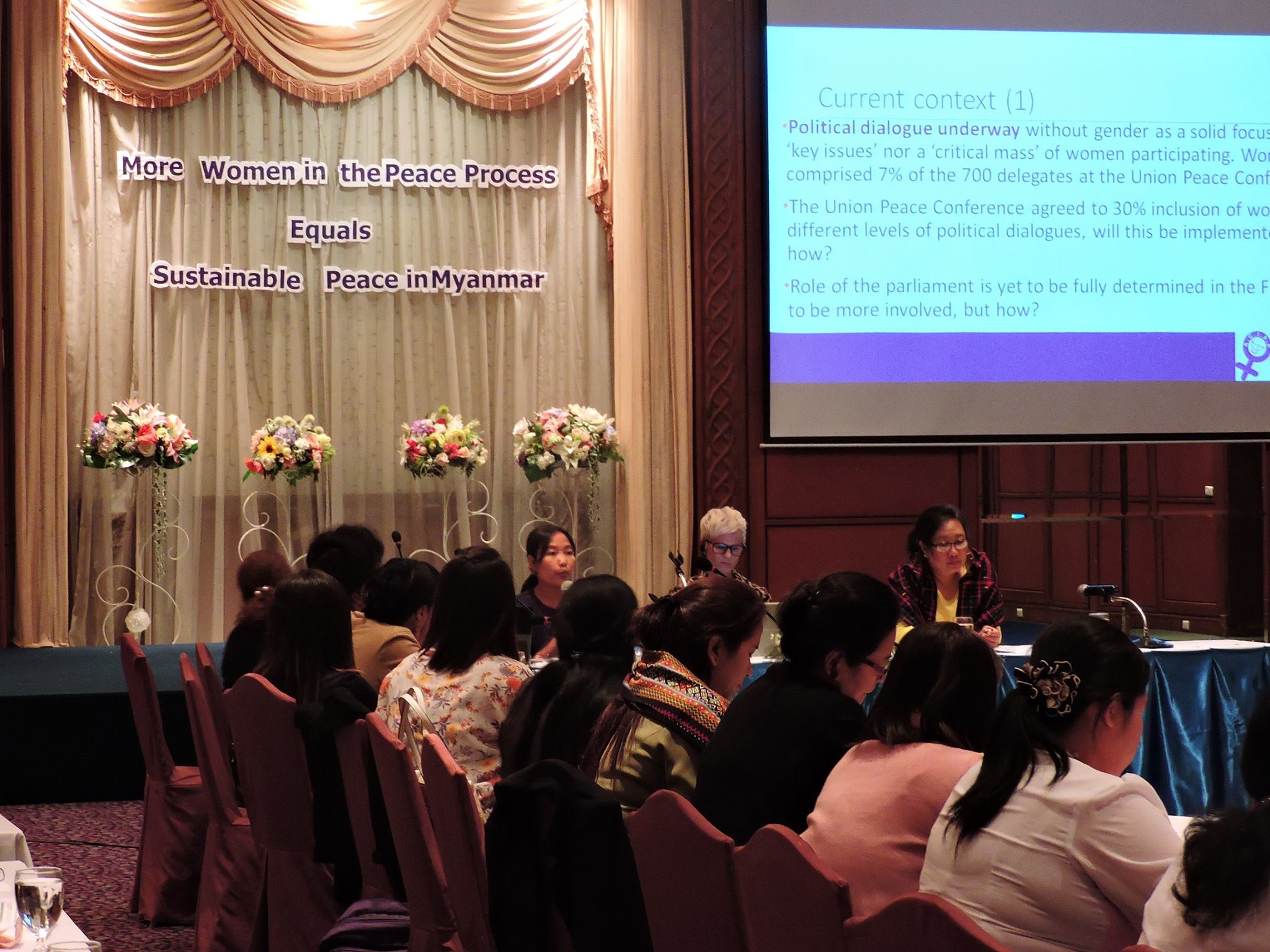Advocates have pushed for stronger role for women in ending decades of war in Burma, during a three-day conference in northern Thailand.
The Alliance for Gender Inclusion in the Peace Process (AGIPP) urged peace negotiators to meet an initial quota of 30 percent women’s participation in formal dialogues. The 30 percent goal was set after signing of the Nationwide Ceasefire Agreement (NCA) in October 2015.
The alliance of domestic and international women’s groups met in Chiang Mai for discussions on the theme of “More Women in the Peace Process Equals Sustainable Peace in Myanmar”.
Ex-parliamentarian and veteran activist Dr. Nyo Nyo Thin said some committees in the peace process are entirely devoid of any female representation.
“We agreed that the peace dialogue in Rangoon should be comprised of at least 30 percent female participants. There are some important committees where there are no women, and in some, only one woman.
“For example, on the Union Peace Dialogue Joint Committee, there is only one woman. There are no female representatives at all in the Joint Monitoring Committee,” she said.
Following the inking of the October 2015 peace accord, drafted framework for the current political dialogue phase initially recommended the minimum quota of 30 percent – however the objective was largely ignored as negotiations began.
Jah Nang, director of the Nyein Foundation that assisted in the organisation of the meeting, called for the quota to be realised.
“There is very little role for women in the current process. It was agreed within the NCA to include 30 percent women, but it was not implemented. Another objective of the meeting is to have a strong delegation of women from various backgrounds, organisations and regions.
Speaking on the sidelines of the meeting, Dwe Bu, a former lawmaker from Kachin State’s Unity and Democracy Party, said the peace process is unsustainable without the input of half the population.
“More than 50 percent of population in Burma are women — and women suffer the most in conflicts. So, the peace process will not be successful without women. However, most of the leadership positions are taken by men. We can achieve peace only when women are there.The participation of women is crucial,” she said.
Globally, women are significantly under-represented in peace building initiatives. In 2013, United Nations Secretary General Ban Ki Moon highlighted the importance of increasing the prominence of women in peace processes.
“The rule of law, women’s access to transitional justice, and women’s participation are deeply connected. Women must be involved at every stage of efforts to reassert the rule of law and rebuild societies through transitional justice. Their needs for security and justice must be addressed. Their voices must be heard. Their rights must be protected,” he said at a UN Security Council (UNSC) debate on women and justice.
[related]
The same year, the UNSC adopted Resolution 2122 – which identified approaches to prioritise women’s roles in both conflict prevention and resolution.



